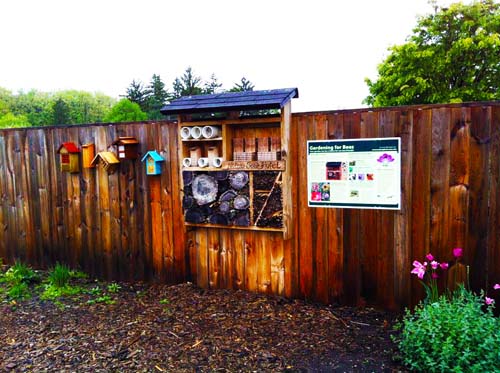Get your summer buzz on: Bee Palooza marks National Pollinator Week at Michigan State University
People of all ages are welcomed to join us June 23 at the MSU Horticulture Gardens to have fun and learn all about pollinators.
Many people think only of allergies when they hear the word “pollen.” But pollination — the transfer of pollen grains to fertilize the seed-producing ovaries of flowers — is an essential part of a healthy ecosystem. Pollinators play a very important role in the production of a lot of crops, including apples, blueberries, pears, plums, squash and melon, and they are essential for reproduction of many flowering trees, shrubs and wildflowers. Bees, both managed honeybees and native bees, are the primary pollinators, but many more insects, mammals and reptiles also help pollinate crops and flowers.
|
|
In celebration of National Pollinator Week, Michigan State University is hosting Bee Palooza from 1 to 5 p.m. on June 23 to give people of all ages a chance to have fun and learn about pollinators. Short educational sessions will take place in various parts of the MSU Horticulture Gardens starting every half-hour from 1 to 3:30 p.m. These will cover topics including honeybees and pollination, building a bee hotel and gardening with native plants. In addition, there will be pollinator-themed face painting and a scavenger hunt for children.
This event is free and open to the public. In the event of rain, Bee Palooza will be cancelled. The MSU Horticulture Gardens are located on the southwest side of Bogue Street and Wilson Road on the MSU campus, and attendees should first go to the visitor center at the (free) parking lot on Bogue Street next to the gardens to pick up a guide to the event.
More details are available on Bee Palooza’s Facebook page. Also, see the MSU Horticulture Garden website for maps to the parking lot and maps of the gardens, along with a list of other campus events that weekend.
For more information, contact Julianna Wilson at jkwilson@msu.edu or Rufus Isaacs at isaacsr@msu.edu.
Dr. Isaacs’ work is funded in part by MSU‘s AgBioResearch.



 Print
Print Email
Email





